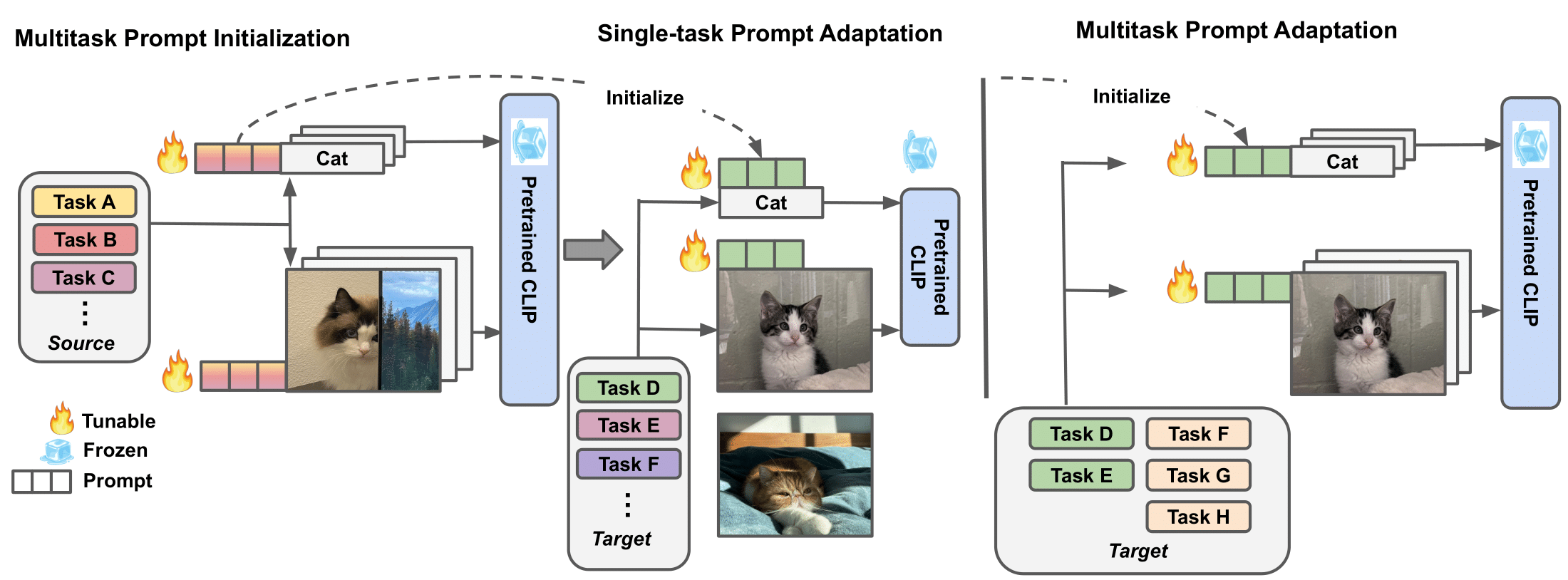Multitask Vision-Language Prompt Tuning
Prompt Tuning, conditioning on task-specific learned prompt vectors, has emerged as a data-efficient and parameter-efficient method for adapting large pretrained vision-language models to multiple downstream tasks. However, existing approaches usually consider learning prompt vectors for each task independently from scratch, thereby failing to exploit the rich shareable knowledge across different vision-language tasks. In this paper, we propose multitask vision-language prompt tuning (MVLPT), which incorporates cross-task knowledge into prompt tuning for vision-language models. Specifically, (i) we demonstrate the effectiveness of learning a single transferable prompt from multiple source tasks to initialize the prompt for each target task; (ii) we show many target tasks can benefit each other from sharing prompt vectors and thus can be jointly learned via multitask prompt tuning. We benchmark the proposed MVLPT using three representative prompt tuning methods, namely text prompt tuning, visual prompt tuning, and the unified vision-language prompt tuning. Results in 20 vision tasks demonstrate that the proposed approach outperforms all single-task baseline prompt tuning methods, setting the new state-of-the-art on the few-shot ELEVATER benchmarks and cross-task generalization benchmarks. To understand where the cross-task knowledge is most effective, we also conduct a large-scale study on task transferability with 20 vision tasks in 400 combinations for each prompt tuning method. It shows that the most performant MVLPT for each prompt tuning method prefers different task combinations and many tasks can benefit each other, depending on their visual similarity and label similarity. Code is available at https://github.com/sIncerass/MVLPT.
PDF Abstract


 CIFAR-10
CIFAR-10
 CIFAR-100
CIFAR-100
 Oxford 102 Flower
Oxford 102 Flower
 Stanford Cars
Stanford Cars
 Food-101
Food-101
 EuroSAT
EuroSAT
 FGVC-Aircraft
FGVC-Aircraft
 Hateful Memes
Hateful Memes
 RESISC45
RESISC45